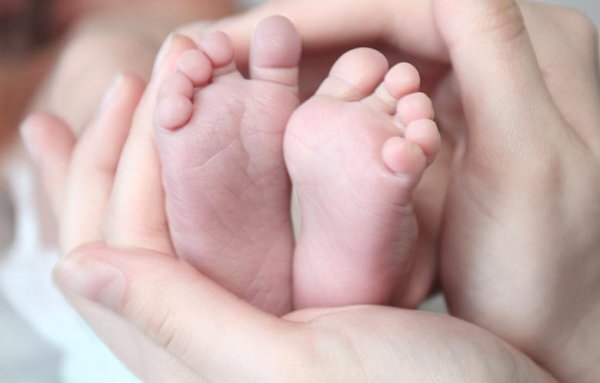The birth of a child is a beautiful event, but also a great responsibility for the parents. It becomes even more complicated when the parents are in a foreign country and don’t know what to expect. They struggle to communicate with doctors due to the language barrier, they don’t understand how things work in Slovakia, how quickly documents need to be arranged after the birth, and so on. They are overwhelmed with questions for which they often don't get clear answers.
Every mother in Slovakia, including foreigners, is entitled to maternity benefits if she has worked for at least 270 days within the past two years. This is a reasonable requirement, but unfortunately, it also affects access to public health insurance if the woman is a foreigner with temporary residence in Slovakia. And that’s a much more significant issue. Everyone understands that during and after childbirth, health insurance is absolutely essential.
If a mother does not meet the condition of 270 days of sickness insurance within two years, she is out of luck. Upon starting maternity leave, she does not become insured by the state, meaning she loses her public health insurance between the 32nd and 34th week of pregnancy. This is certainly an unpleasant situation in such an advanced stage of pregnancy. The only realistic solution is to either take out commercial health insurance or pay for all medical procedures out-of-pocket. However, only one health insurance company in Slovakia offers commercial insurance for pregnant foreign women.
Then comes the birth. According to the law, if at least one of the parents with temporary residence in Slovakia is insured, the newborn automatically receives public health insurance in Slovakia. Sadly, the reality is different. Insurance companies, in violation of the law, refuse to insure the most vulnerable – newborns – arguing that they require the child to have a residence permit and proof of residence (a document similar to an ID card).
Every mother in Slovakia, including foreigners, is entitled to maternity benefits if she has worked for at least 270 days within the past two years. This is a reasonable requirement, but unfortunately, it also affects access to public health insurance if the woman is a foreigner with temporary residence in Slovakia. And that’s a much more significant issue. Everyone understands that during and after childbirth, health insurance is absolutely essential.
If a mother does not meet the condition of 270 days of sickness insurance within two years, she is out of luck. Upon starting maternity leave, she does not become insured by the state, meaning she loses her public health insurance between the 32nd and 34th week of pregnancy. This is certainly an unpleasant situation in such an advanced stage of pregnancy. The only realistic solution is to either take out commercial health insurance or pay for all medical procedures out-of-pocket. However, only one health insurance company in Slovakia offers commercial insurance for pregnant foreign women.
Then comes the birth. According to the law, if at least one of the parents with temporary residence in Slovakia is insured, the newborn automatically receives public health insurance in Slovakia. Sadly, the reality is different. Insurance companies, in violation of the law, refuse to insure the most vulnerable – newborns – arguing that they require the child to have a residence permit and proof of residence (a document similar to an ID card).
A real-life example:
Mrs. A., a third-country national, had a temporary residence permit in Slovakia for the purpose of studying. In August 2018, she applied to change her residence purpose to employment. The decision period is 90 days. In the meantime, she became pregnant and didn’t receive the new residence permit until April 2019. She obtained public health insurance starting from April. The long wait for the decision certainly didn’t help her mental well-being, and due to complications, she was hospitalized in April. In early May, during her seventh month of pregnancy, she gave birth to a son. Within the legally required 60-day period, she submitted an application for her son's health insurance. However, all three health insurance companies rejected the application, unlawfully demanding a residence permit for the baby. Again, the baby was born prematurely in the seventh month, needed urgent medical care, and after discharge, required frequent check-ups. The mother had public health insurance and a valid temporary residence permit. The baby, by birth, had a legal right to stay, and the mother submitted the insurance application on time – yet the newborn still has no health insurance.
These complications can ruin the emotional well-being and sense of security for the mother and child, and undermine trust in Slovakia as a country governed by the rule of law. What kind of state are we, when insurance companies ignore their legal obligations and refuse to insure the most defenseless – newborn children and their mothers, who often lose their health insurance at the start of maternity leave?
These complications can ruin the emotional well-being and sense of security for the mother and child, and undermine trust in Slovakia as a country governed by the rule of law. What kind of state are we, when insurance companies ignore their legal obligations and refuse to insure the most defenseless – newborn children and their mothers, who often lose their health insurance at the start of maternity leave?
Current articles by Alona Kurotova are also available at dennikn.sk





